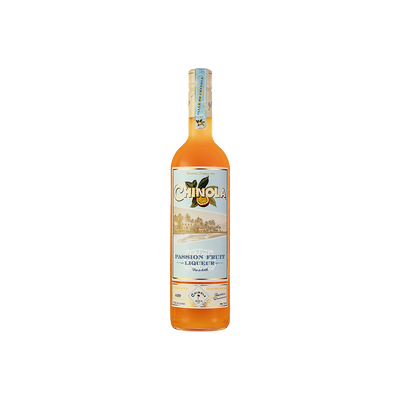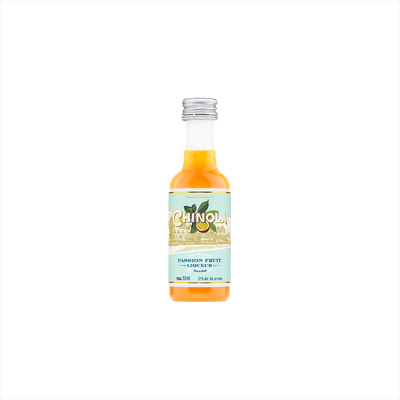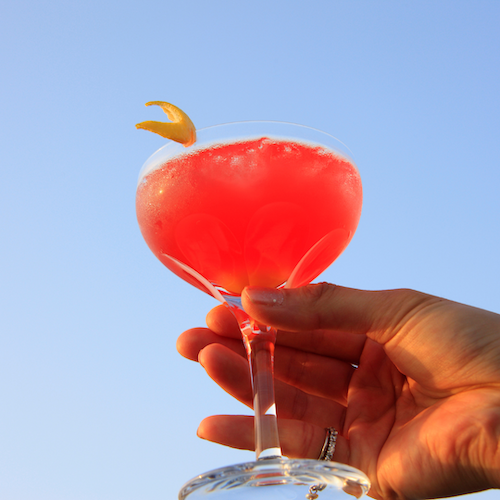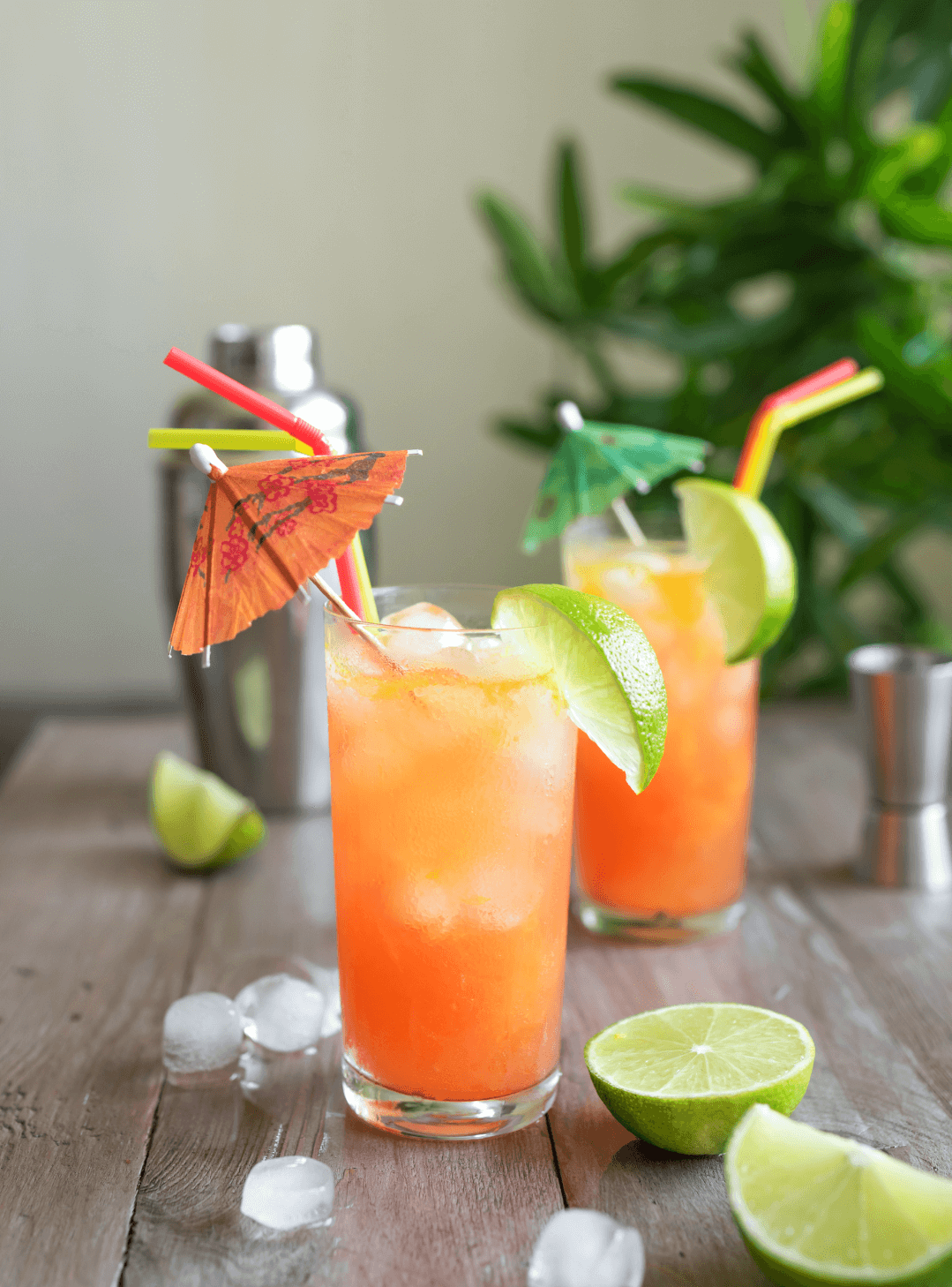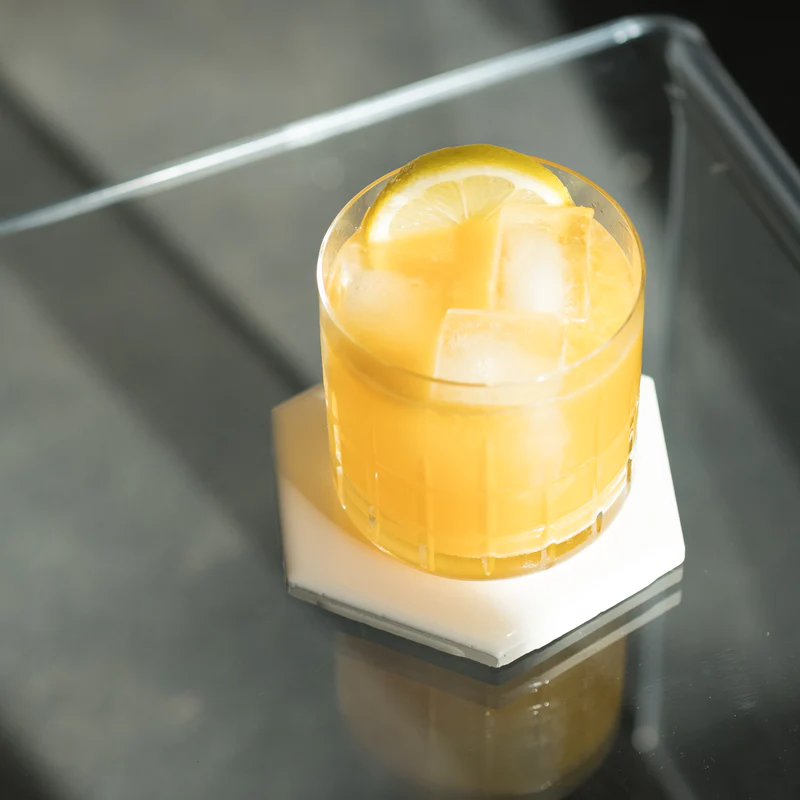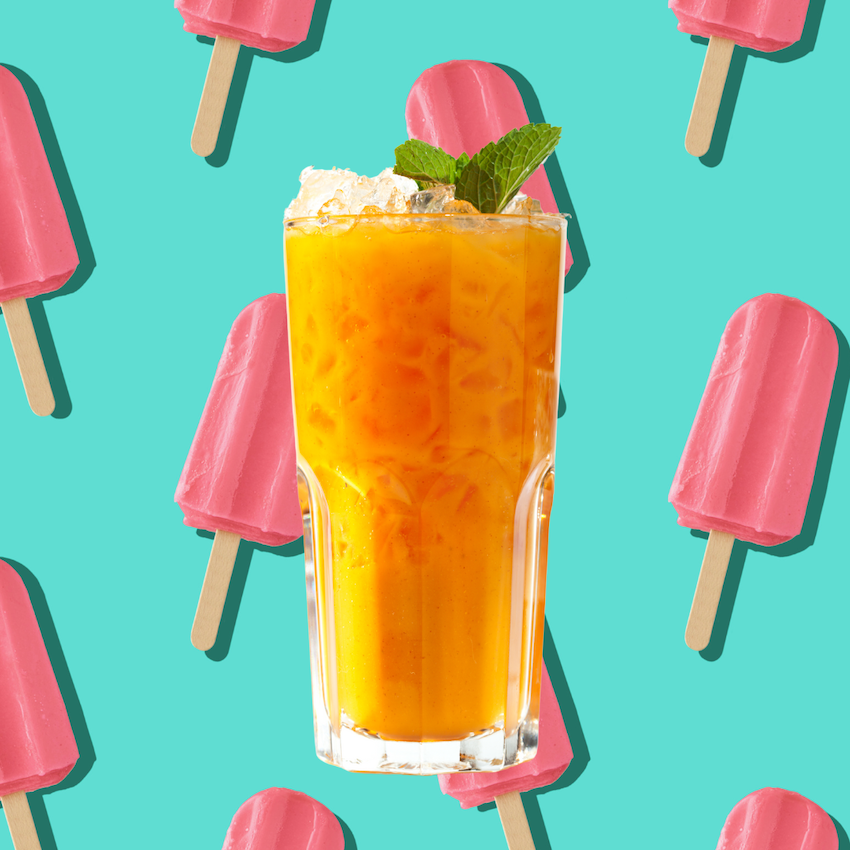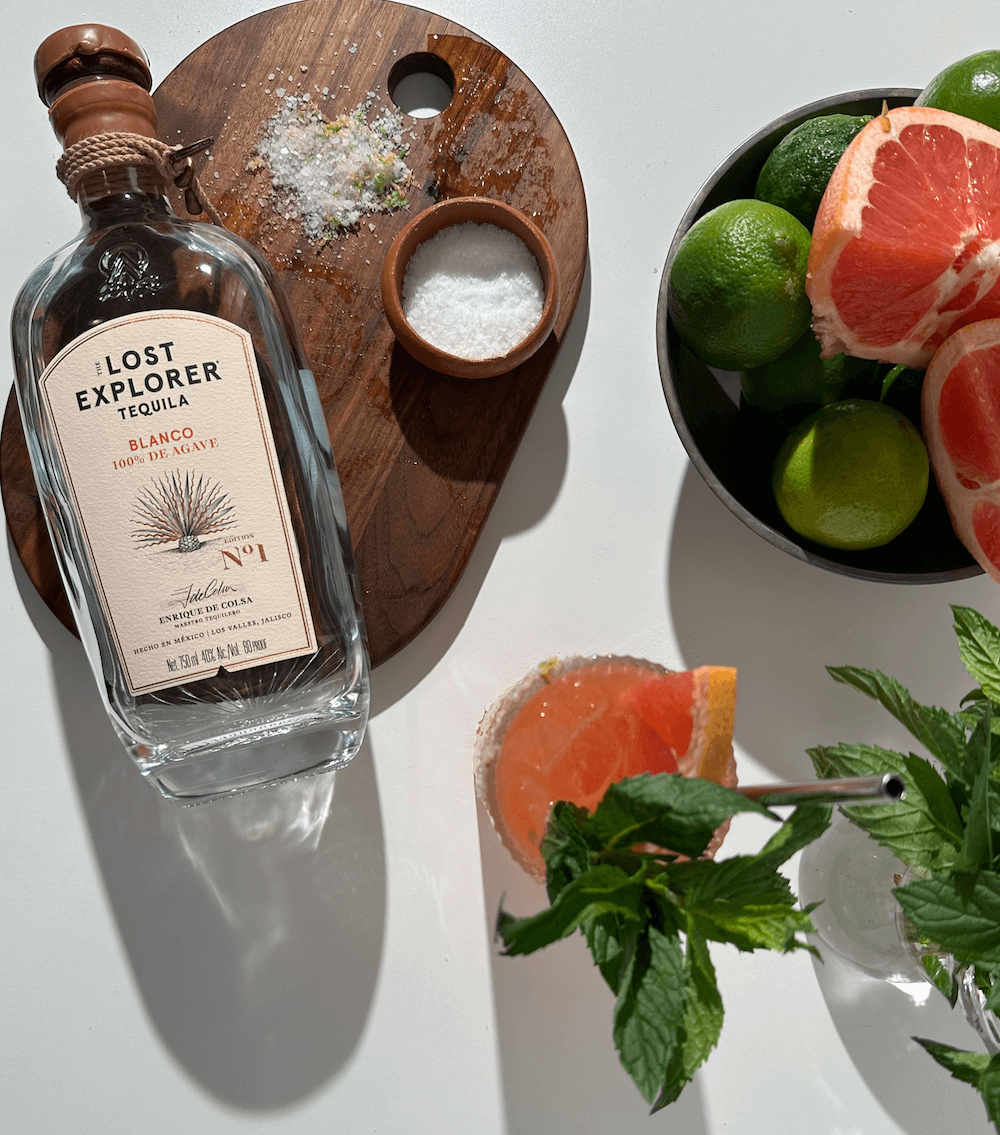
Tigre Del Valle Cocktail Recipe
Ingredients:
-
1 oz Chinola Passion Fruit Liqueur
-
1 oz Tequila Blanco
-
1 oz pineapple juice
-
.75 oz freshly squeezed lime juice
-
.5 oz turmeric honey syrup*
-
2 sage leaves
Directions:
- Combine all ingredients in a shaker with ice and shake well.
- Strain into a rocks glass over fresh ice.
- Garnish with pineapple wedge and a sage leaf.

